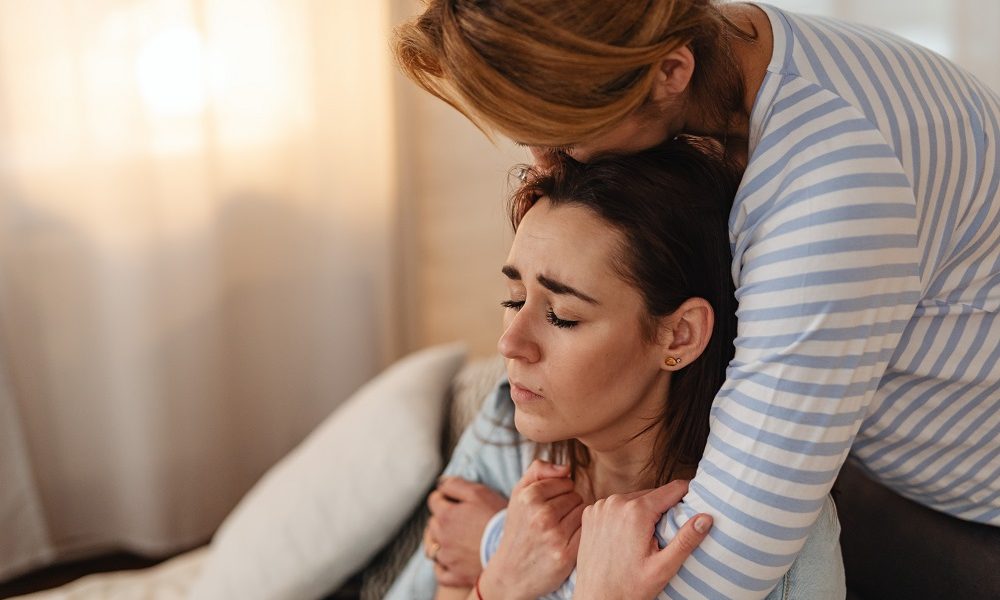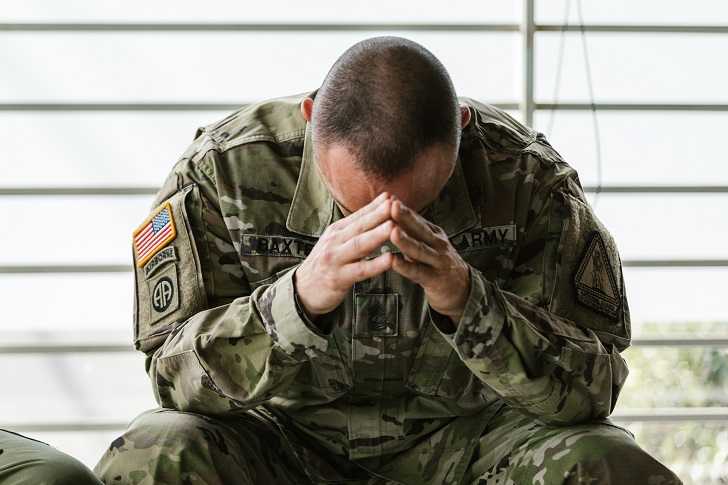
Self-care for PTSD

In today’s modern world, with our diverse experiences, dealing with Post-Traumatic Stress Disorder (PTSD) is not uncommon.
Coping with PTSD can be challenging, but self-care plays a crucial role in recovery. This article will explore self-care strategies specifically tailored for individuals with PTSD, empowering them to take control of their well-being and embark on a journey toward healing and resilience.
Understanding PTSD
Before diving into self-care strategies, it’s essential to understand what PTSD is. PTSD can develop after a traumatic experience, such as combat exposure, physical assault, natural disasters, or accidents.
It is characterized by various symptoms, including intrusive thoughts, avoidance behaviors, negative mood changes, and heightened arousal. Living with PTSD can feel like an ongoing battle, but self-care can be a powerful weapon against its debilitating effects.

rdne-stock-project/ Pexels | Increasing awareness about PTSD is essential to encourage individuals to seek help and support
Seek Professional Help
The first step in self-care for PTSD is seeking professional help. PTSD is a mental health disorder, and it’s essential to consult with a trained therapist or counselor who specializes in trauma. Therapy can provide a safe space to process traumatic experiences, learn coping strategies, and develop a treatment plan tailored to your unique needs.
Practice Mindfulness and Grounding Techniques
Mindfulness and grounding techniques are invaluable tools for managing PTSD symptoms. Mindfulness involves staying in the present moment without judgment. Techniques like deep breathing, meditation, and progressive muscle relaxation can greatly alleviate mood and energy levels.
Create a Safe Space
Creating a safe physical and emotional space is crucial for individuals with PTSD. This may involve rearranging your living environment to minimize triggers or developing a soothing daily routine. Having a dedicated space to relax and decompress is essential for managing symptoms and promoting a sense of security.

RF studio/ Pexels | Mindfulness can be a valuable component of a comprehensive treatment plan
Establishing Healthy Routines
A regular routine can provide a sense of stability and comfort for individuals dealing with PTSD. Prioritizing healthy habits like maintaining a balanced diet, ensuring adequate sleep, and engaging in regular physical activity can significantly improve mood, reduce stress levels, and contribute to overall well-being.
Building Social Support
Avoiding isolation is crucial for those managing PTSD symptoms. Connecting with trusted friends and family members to share experiences and feelings can provide valuable emotional support. Additionally, participating in support groups designed for individuals with PTSD allows for connections with others who understand the challenges, offering guidance and encouragement.
Art and Expressive Activities
Creative activities can serve as therapeutic methods for individuals with PTSD. These activities offer nonverbal ways to process emotions and experiences, serving as a release for pent-up feelings and providing a sense of achievement.

RDNE stock project/ Pexels | Resilience and recovery are possible, even though the journey can be challenging
Managing Triggers
Managing triggers is crucial in self-care for PTSD. Triggers, which can be specific situations, objects, or people reminding individuals of the traumatic event, can intensify symptoms. Through therapy and self-awareness, recognizing triggers and developing coping strategies becomes possible.
Addressing Negative Thoughts
Negative thought patterns are prevalent in those with PTSD, often leading to feelings of guilt, shame, and hopelessness. Addressing this fosters improved emotional well-being and resilience.
Embracing Self-Compassion
Living with PTSD poses immense challenges, emphasizing the importance of practicing self-compassion. Being kind to oneself and recognizing that healing is a gradual process is vital. Avoiding self-blame and criticism and focusing on self-care and self-love can significantly impact well-being.
Avoiding Self-Medication
Coping with the emotional distress of PTSD might cause some to turn to drugs or alcohol as a means of self-medication. However, substance abuse can exacerbate PTSD symptoms and complicate recovery. To address both PTSD and addiction, seeking professional help is crucial.
More in Mental Health
-
`
5 Reasons Why Dad’s Side of the Family Misses Out
Family bonds are intricate and multifaceted, often creating a unique tapestry of connections. However, many people notice a peculiar trend: stronger...
July 12, 2024 -
`
A Quick Guide on How to Get Short-Term Disability Approved for Anxiety and Depression
Living with anxiety or depression poses unique challenges, particularly in the workplace, where stress can exacerbate symptoms. For many, short-term disability...
July 5, 2024 -
`
Why Do People Feel Sleepy After Eating?
Is feeling sleepy after eating a sign of diabetes? Well, not directly. There are many reasons why you feel drowsy after...
June 20, 2024 -
`
What Is High-Functioning Depression? Symptoms and Treatment
High-functioning depression may not be a term you hear every day, but it’s a very real and challenging experience for many....
June 13, 2024 -
`
Kelly Clarkson’s Weight Loss Ozempic Journey – Debunking the Rumors
In a refreshing moment of transparency, Kelly Clarkson, the beloved singer and talk show host, sheds light on her remarkable weight...
June 3, 2024 -
`
What Is the Best Milk for Gut Health and Why?
In recent years, the milk section at the grocery store has expanded far beyond the traditional options. While cow’s milk has...
May 30, 2024 -
`
Do Dental Implants Hurt? Here’s All You Need to Know
When you hear “dental implants,” you might wince at the thought of pain. But do dental implants hurt as much as...
May 24, 2024 -
`
5 Key Differences Between A Psych Ward & A Mental Hospital
Curious about the differences between a psych ward and a mental hospital? You are not alone. With the mental health conversation...
May 16, 2024 -
`
It’s Official! “Selling Sunset’s” Christine Quinn & Husband Christian Dumontet Are Parting Ways
Have you ever found yourself unexpectedly engrossed in the personal lives of celebrities, especially when their stories take dramatic turns? Well,...
May 9, 2024










You must be logged in to post a comment Login